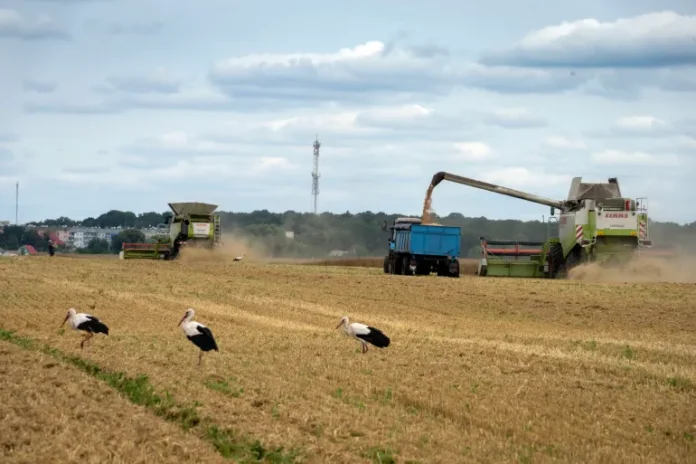Following the European Commission’s decision not to extend a grain import ban, Poland, Slovakia, and Hungary take matters into their hands, levying their own restrictions on Ukrainian grain
In a direct response to the European Commission’s decision not to prolong the Ukrainian grain import ban, Poland, Hungary, and Slovakia have declared individual restrictions, underlining their concerns over the influx of Ukrainian agricultural products.
Earlier this year, the European Union’s edict permitted nations like Poland, Hungary, Romania, Slovakia, and Bulgaria to block domestic sales of Ukrainian produce like wheat, maize, and sunflower seeds, but allowed their transit for exports. Poland’s Prime Minister, Mateusz Morawiecki, fervently announced at a recent Elk town gathering, “Despite the European Commission’s stance, we’re upholding this ban. It’s in the Polish farmer’s best interest.”
Hungary swiftly followed by proscribing imports of 24 Ukrainian agricultural products, a list that features grains, various meats, and honey. Slovakia’s agriculture leader also echoed a similar sentiment by announcing a grain import ban. These bans are strictly domestic, allowing the transit of these goods to other markets.
Post Russia’s withdrawal from the UN-mediated Black Sea grain agreement in July, the EU set up ‘Solidarity Lanes’, alternative land corridors for Ukraine to ensure the smooth export of grains and oilseeds. The European Commission confirmed the termination of the existing regulations after Ukraine vowed to implement measures within a month to curb grain surges. “The earlier market imbalances in the five EU states bordering Ukraine have now been rectified,” highlighted the European Commission.
While the EU will hold back from further curtailments, given Ukraine maintains these new measures, the local farmers in the affected countries argue otherwise. They claim an oversupply of Ukrainian products is tanking their market prices, pushing many to the brink of insolvency.
Most of these neighboring countries, excluding Bulgaria, had been lobbying for a continued embargo beyond the September 15 end date. With Bulgaria opting out, nations like Romania, Hungary, and Slovakia had hinted at possibly extending the ban on their own terms. Romania, which had initially refrained from any unilateral ban, expressed its disappointment at the lack of a collective EU solution and awaits Ukraine’s strategy to tackle the import surge before making its move. The country, with the Danube River flowing through, witnesses a substantial chunk of the alternate trade routes. Romanian agriculturists have warned of potential protests if the ban isn’t extended.
Over the past year, Ukraine primarily utilized the Solidarity Lanes for 60% of its exports, and the Black Sea routes for the remaining, under the now-defunct deal. The past month saw almost 4 million tonnes of Ukrainian grain moving through these Solidarity Lanes, with the majority via the Danube. The European Commission aims to boost these exports via Romania, but Russian drone strikes on grain infrastructures near the Romanian border present unforeseen challenges.



